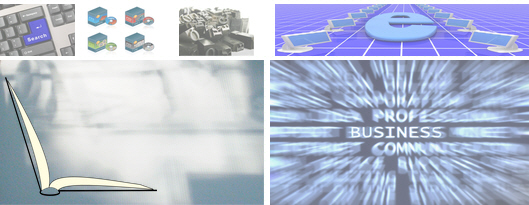
Computing
Technology
Technology
The Purchase Decision
Selecting computing solutions without in-depth analysis and comparison of
alternatives is risky but most small to medium businesses do not have the resources
for such investigations. Advanced technology, business budgets and blind
purchasing all impact on the success of purchasing new computing technology.
Computing technology provides a huge number of business solutions, so is it any
wonder that small to medium business owners and managers cannot always tap into
expert decision-making when choosing the right technology for their business?
Also, businesses can only evaluate their hardware and software requirements to suit
their budgets. When a business decides to buy cheap hardware based on
budgetary restraints they are risking spending more than expected if the quality of
the hardware fails to deliver proper performance. Finally, businesses are also
expected to choose from a multitude of hardware and software suppliers, often
purchasing expensive products that provide thousands of features that are not used.
Busicomms has researched the availability of online business suppliers revealing
some simple solutions.
Software
The first choice for your requirement is to decide on the right software you are
going to use. Common sense tells us to select software that is familiar to the users
(eg windows user environment). Software also comes into various categories such
as productivity software (word processor, spreadsheet, office software, book keeping,
presentation graphics, project management etc), specialized (eg call center
software, ), systems software (Microsoft, Unix etc), or in-house software (usually the
domain of large businesses). The majority of SMB’s are looking for productivity
software with specific features such as support, adaptability and low price, this is
quite achievable. The remaining businesses may be looking for the well known
vendors due to familiarity or loyalty. Desktop publishing software is also available
for a wide range of business requirements
Computer Hardware
The computers available today provide tremendous possibilities for using business
software. Selecting the right computer for your general business requirements
simply comes down to identifying the software you want to use, then purchase the
most recent technology available. If you are replacing or buying new desktop or
laptop computer systems you should really consider PCs that are capable of
running one of the most common (and newly released) operating systems such as
Windows Vista. At a minimum Vista requires an 800MHz processor, 512MB of
RAM, 15GB of a 20GB hard disk, and SVGA graphic support. There are a number
of computer specials providing computing capacities well beyond the base
requirements.
Portability is the key to most business efforts. Flash drives will enhance the
versatility of your laptop computer or desktop by providing you with the opportunity
to carry those important but large files with you.
If you are purchasing a laptop computer for a lot of graphic or entertainment use
take care to choose one that does not share computer memory with video memory.
Selecting computing solutions without in-depth analysis and comparison of
alternatives is risky but most small to medium businesses do not have the resources
for such investigations. Advanced technology, business budgets and blind
purchasing all impact on the success of purchasing new computing technology.
Computing technology provides a huge number of business solutions, so is it any
wonder that small to medium business owners and managers cannot always tap into
expert decision-making when choosing the right technology for their business?
Also, businesses can only evaluate their hardware and software requirements to suit
their budgets. When a business decides to buy cheap hardware based on
budgetary restraints they are risking spending more than expected if the quality of
the hardware fails to deliver proper performance. Finally, businesses are also
expected to choose from a multitude of hardware and software suppliers, often
purchasing expensive products that provide thousands of features that are not used.
Busicomms has researched the availability of online business suppliers revealing
some simple solutions.
Software
The first choice for your requirement is to decide on the right software you are
going to use. Common sense tells us to select software that is familiar to the users
(eg windows user environment). Software also comes into various categories such
as productivity software (word processor, spreadsheet, office software, book keeping,
presentation graphics, project management etc), specialized (eg call center
software, ), systems software (Microsoft, Unix etc), or in-house software (usually the
domain of large businesses). The majority of SMB’s are looking for productivity
software with specific features such as support, adaptability and low price, this is
quite achievable. The remaining businesses may be looking for the well known
vendors due to familiarity or loyalty. Desktop publishing software is also available
for a wide range of business requirements
Computer Hardware
The computers available today provide tremendous possibilities for using business
software. Selecting the right computer for your general business requirements
simply comes down to identifying the software you want to use, then purchase the
most recent technology available. If you are replacing or buying new desktop or
laptop computer systems you should really consider PCs that are capable of
running one of the most common (and newly released) operating systems such as
Windows Vista. At a minimum Vista requires an 800MHz processor, 512MB of
RAM, 15GB of a 20GB hard disk, and SVGA graphic support. There are a number
of computer specials providing computing capacities well beyond the base
requirements.
Portability is the key to most business efforts. Flash drives will enhance the
versatility of your laptop computer or desktop by providing you with the opportunity
to carry those important but large files with you.
If you are purchasing a laptop computer for a lot of graphic or entertainment use
take care to choose one that does not share computer memory with video memory.